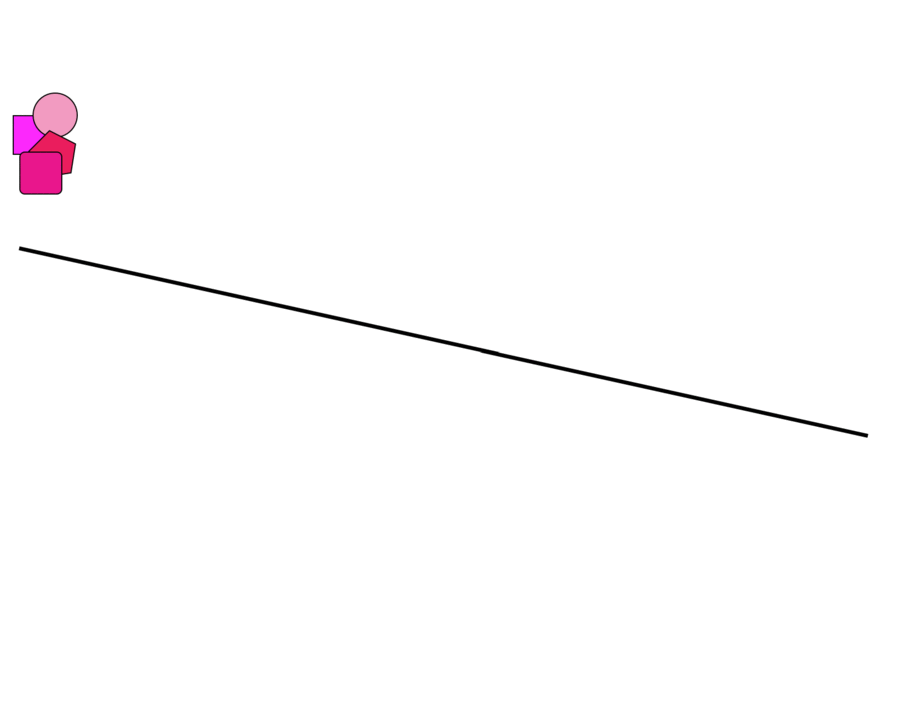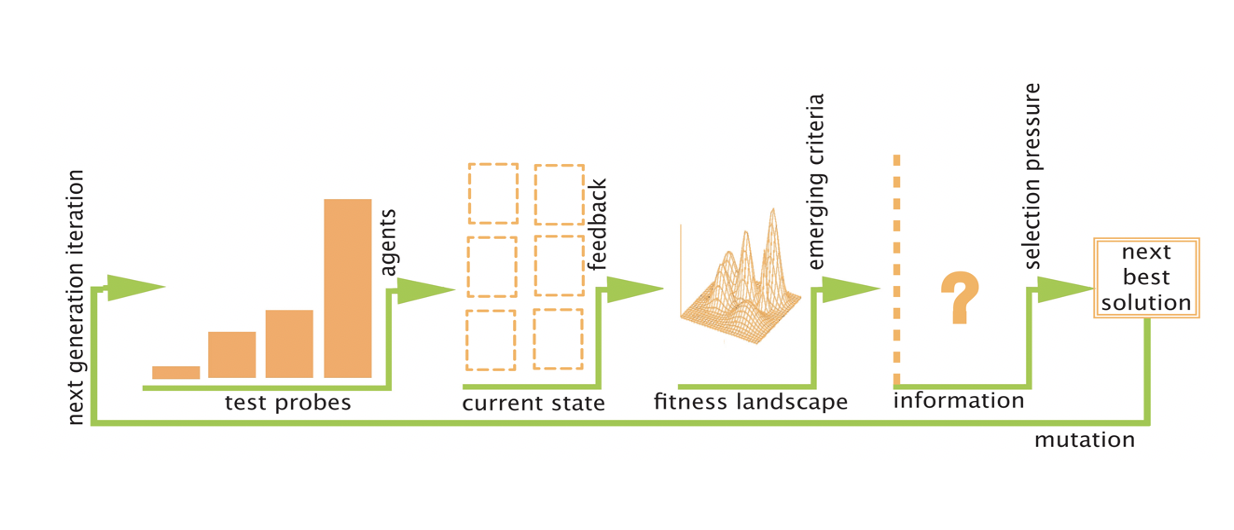cas/definition.php (people or term)

Evolutionary
Agents in the CAS constantly adjust their possible behaviors to inputs - maintaining fitness over time.
CAS systems evolve over the course of time.

Evolution is a term closely related to Adaptive Capacity: while the two concepts are often used interchangeably, there are some nuances. It is preferable to speak of complexity dynamics being adaptive rather than evolutionary, because adaptive implies a better fit with a context. While we normally associate the idea of evolution with a change for the better, it can also be used to describe any kind of change, whether for better or worse.
General Darwinian processes of Variation, Selection and Retention of desired characteristics help drive the system.
Need to say something here about adjacent possible
close to adaptation, but also the notion of a co-evolving fitness landscape.
adaptation is not static
combine: minimizing goals to process energy + game theory (minimizing goals achieved within a population) = emergence of next level order that then has its own minimizing goals... etc.
Information processor but also populations of interacting information processors.
Cite this page:
Wohl, S. (2022, 13 June). Evolutionary. Retrieved from https://kapalicarsi.wittmeyer.io/definition/evolving
Evolutionary was updated June 13th, 2022.
Nothing over here yet
Navigating Complexity © 2015-2025 Sharon Wohl, all rights reserved. Developed by Sean Wittmeyer
Sign In (SSO) | Sign In
Related (this page): Landscape Urbanism (15), Adaptive Capacity (21), Rules (213), Iterations (56), Fitness (59), LINKS (56),
Section: terms
Non-Linearity Related (same section): Related (all): Urban Modeling (11, fields), Resilient Urbanism (14, fields), Relational Geography (19, fields), Landscape Urbanism (15, fields), Evolutionary Geography (12, fields), Communicative Planning (18, fields), Assemblage Geography (20, fields), Tipping Points (218, concepts), Path Dependency (93, concepts), Far From Equilibrium (212, concepts),
Nested Orders Related (same section): Related (all): Urban Modeling (11, fields), Urban Informalities (16, fields), Resilient Urbanism (14, fields), Self-Organized Criticality (64, concepts), Scale-Free (217, concepts), Power Laws (66, concepts),
Emergence Related (same section): Related (all): Urban Modeling (11, fields), Urban Informalities (16, fields), Urban Datascapes (28, fields), Incremental Urbanism (13, fields), Evolutionary Geography (12, fields), Communicative Planning (18, fields), Assemblage Geography (20, fields), Self-Organization (214, concepts), Fitness (59, concepts), Attractor States (72, concepts),
Driving Flows Related (same section): Related (all): Urban Datascapes (28, fields), Tactical Urbanism (17, fields), Relational Geography (19, fields), Parametric Urbanism (10, fields), Landscape Urbanism (15, fields), Evolutionary Geography (12, fields), Communicative Planning (18, fields), Assemblage Geography (20, fields), Open / Dissipative (84, concepts), Networks (75, concepts), Information (73, concepts),
Bottom-up Agents Related (same section): Related (all): Urban Modeling (11, fields), Urban Informalities (16, fields), Resilient Urbanism (14, fields), Parametric Urbanism (10, fields), Incremental Urbanism (13, fields), Evolutionary Geography (12, fields), Communicative Planning (18, fields), Rules (213, concepts), Iterations (56, concepts),
Adaptive Capacity Related (same section): Related (all): Urban Modeling (11, fields), Urban Informalities (16, fields), Tactical Urbanism (17, fields), Parametric Urbanism (10, fields), Landscape Urbanism (15, fields), Incremental Urbanism (13, fields), Evolutionary Geography (12, fields), Feedback (88, concepts), Degrees of Freedom (78, concepts),
